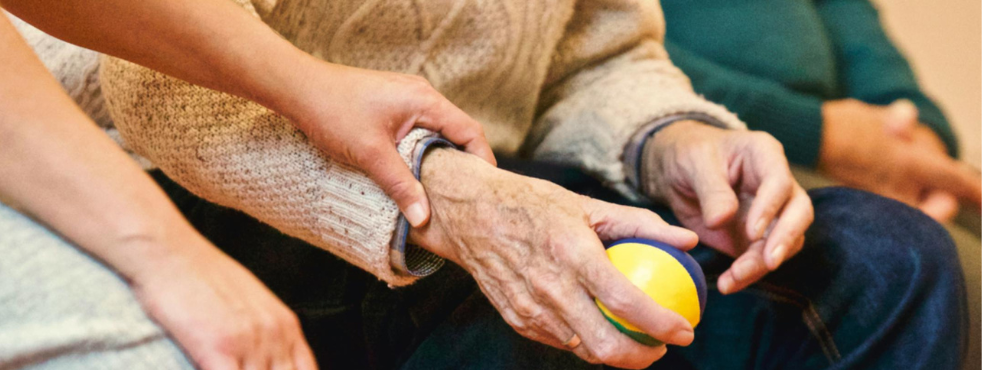Participatory research project aims to support people with dementia and family carers
The Chair of Nursing Science at Witten/Herdecke University is working with people with dementia and their carers to develop a programme to improve communication in care situations.

Around 1.8 million people in Germany [1] have dementia, more than two thirds live at home and are cared for by relatives. This situation harbours major challenges for both sides: People with dementia often feel that they are not properly recognised or taken seriously; their relatives, on the other hand, wonder how they should respond appropriately when communication becomes more difficult.
Improving communication in care situations through guided reflection is the aim of the new research project "Participatory focus group-based development of an individualised video feedback intervention programme for people with dementia living at home and their family carers (ParDeVI)", which has been launched under the direction of Prof. Dr Margareta Halek, Head of the Department of Nursing Science at Witten/Herdecke University (UW/H).
The Video Feedback Intervention Programme (VIP) involves recording short videos of everyday care-related situations. Trained carers then discuss the recordings with those affected and identify successful situations. The aim is to strengthen the skills of family carers, promote positive moments together and improve mutual understanding. Initial international studies have already shown positive effects. However, people with dementia living at home and their carers have not been included in the development of VIPs to date - the research project at UW/H now aims to close this gap.
By analysing the video recordings, the aim is to reflect on how people are treated
Over the next twelve months, the researchers will hold joint workshops with people with dementia living at home and their carers to develop situations and target parameters that are particularly important to those affected when using video feedback. They also want to find out how those affected can best be included in a follow-up study. Local networks and practice partners are supporting the project team, including the NRW State Association of Alzheimer Societies, the Witten/Wetter/Herdecke Dementia Network and the Dementia Centre of the Caritas Association for the Mettmann District.
The researchers hope that the participatory process will enable them to test the jointly developed video feedback intervention programme in a follow-up study: It should be better suited to the requirements and needs of people with dementia in need of care and their carers and be individually tailored to them.
"Reliable findings from an effectiveness study are important so that the programme can be incorporated into standard care in the long term. Only then can more people with dementia and their relatives benefit from it," says Prof Halek. The results of the project can help with the training and qualification of carers, support scientists in similar projects and have a positive influence on the public perception of people with dementia.
The project is funded by the Federal Ministry of Education and Research.
[1]German Alzheimer Society e.V.: Dementia knowledge (deutsche-alzheimer.de)
Photos for download
Contact person

Svenja Malessa
Press Officer
Administration | Communication & Marketing
Alfred-Herrhausen-Straße 48
58455 Witten
Room number: 2.F05
